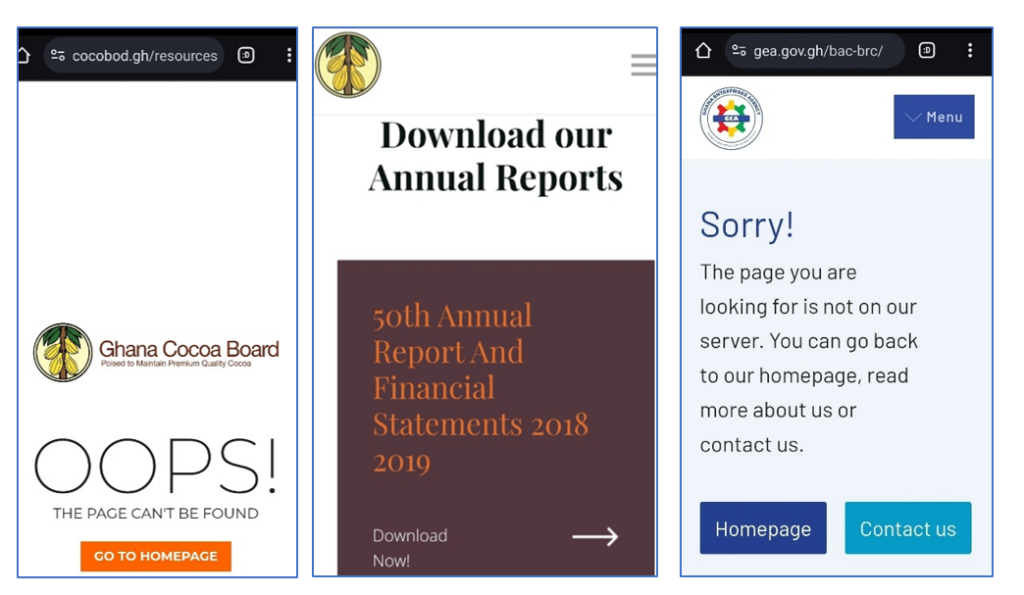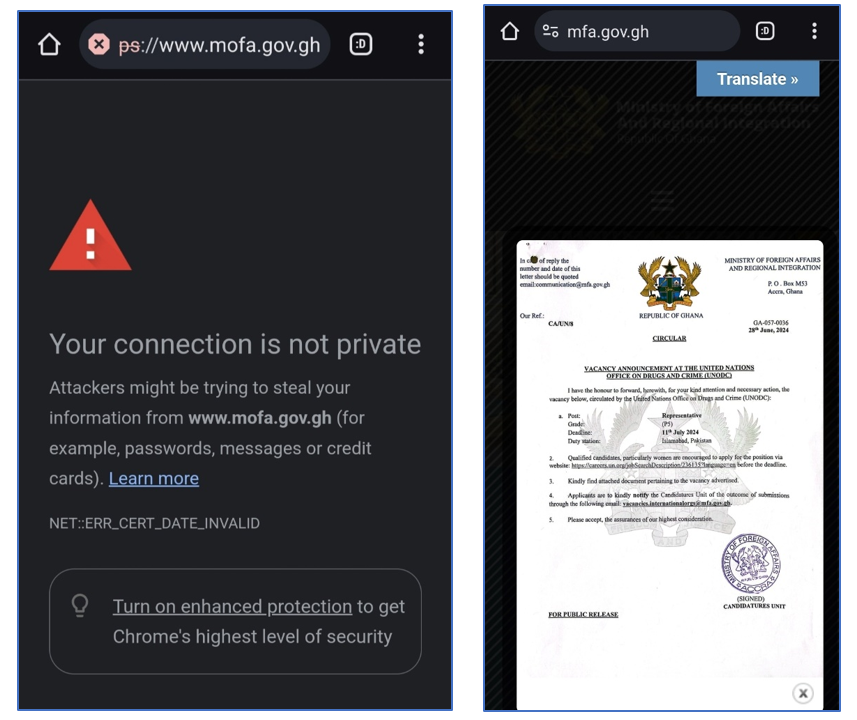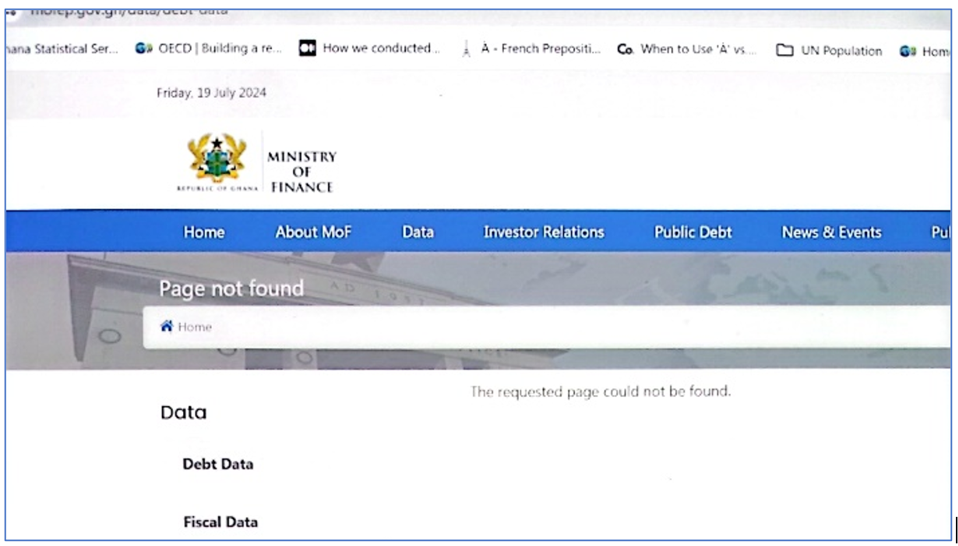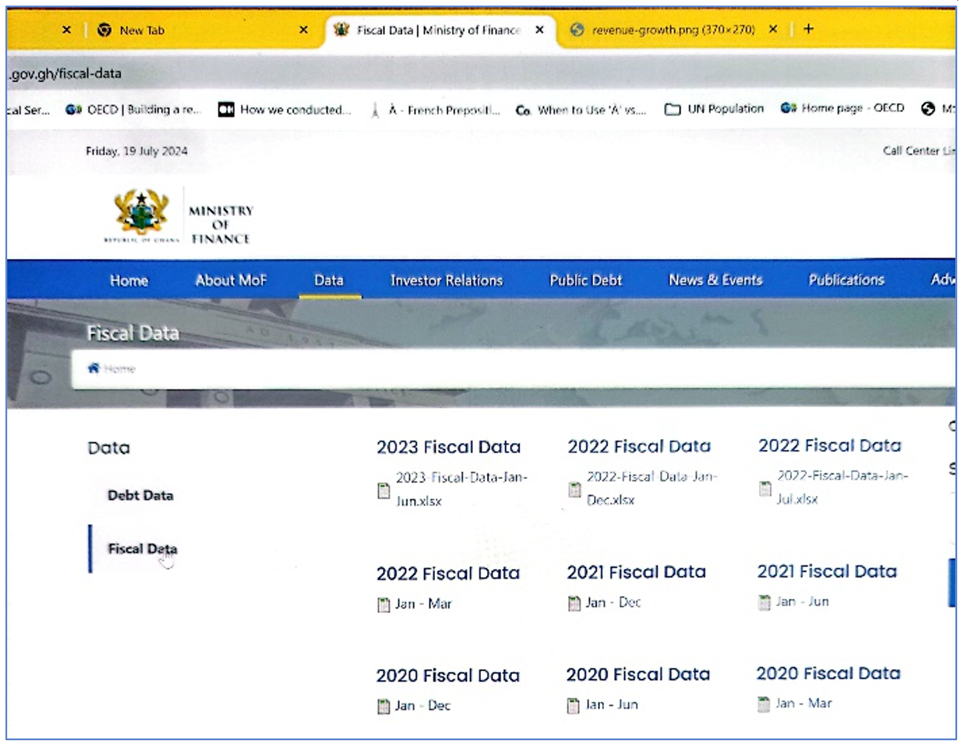‘Oops!’ What some government websites tell us about the quality of leadership in public sector
“Oops” is not something we should associate with, or expect from, the government – either from a ministry and its various departments and agencies, or our many state-owned enterprises.
But that’s exactly the message you get when you try to access the “Marketing and Statistics” page of COCOBOD, the cash-strapped cash cow of the government, whose leadership has been the centre of controversy for a long as it has existed.
They’ve been “oopsing” for at least the past year that I’ve been trying to access those statistics. Which should not be surprising, because their most recent annual report published on their website as of July 19 2024 was that of 2019. Who cares about good corporate governance in the public sector when you can get away with so much?
And then we have the Ghana Enterprises Agency (GEA), whose website simply says “Sorry” for information on its activities in the districts, where entrepreneurship and development actually take place.
Like other government bodies, however, its website is more of a shrine to the CEO and her fellow executives than a place to share needed public information on their work. A recent promotional video from the Ministry of Finance put the GEA at the centre of its business development agenda. Good luck with that!
The website of the Ministry of Foreign Affairs and Regional Integration is perhaps the most bizarre. As of July 19, 2024, the homepage simply displayed a “Vacancy Announcement at the United Nations Office on Drugs and Crime”. Looks like no one at the Ministry gives a damn about the website, as long as they get paid every month.
And then there’s the Ministry of Finance, whose website address still reads “mofep.gov.gh“, from its old name of Ministry of Finance and Economic Planning. Access to various parts of the mobile version of the site was barely functional, with the site choked instead with photographs of a minister who was fired months ago for wrecking the economy.
But the desktop version of the site, as of 19 July 2024, showed that the ministry is no less dysfunctional than its cousins when it comes to (not) sharing critical information with the public. Its most recent fiscal data covered only January-June 2023, and a query for “Debt Data” was greeted with the response, “The requested page could not be found”.
The website for the Ministry of Food and Agriculture, whose minister is known more for lavish funerals for dead relatives and his controversial dash for SSNIT assets than addressing the country’s raging food inflation, does not even grant you access to be able to assess anything. You’re greeted with a warning that “Attackers might be trying to steal your information from mofa.gov.gh….” Looks like hackers are more interested in the site than the minister.
Dysfunctional government websites, such as these, are symptomatic of a deeper problem at the helm: failed leadership, which is also reflective of the problems faced by this sample of ministries and state agencies.
Feel free to check out other websites and draw your own conclusions on “Leadership and government websites.”







